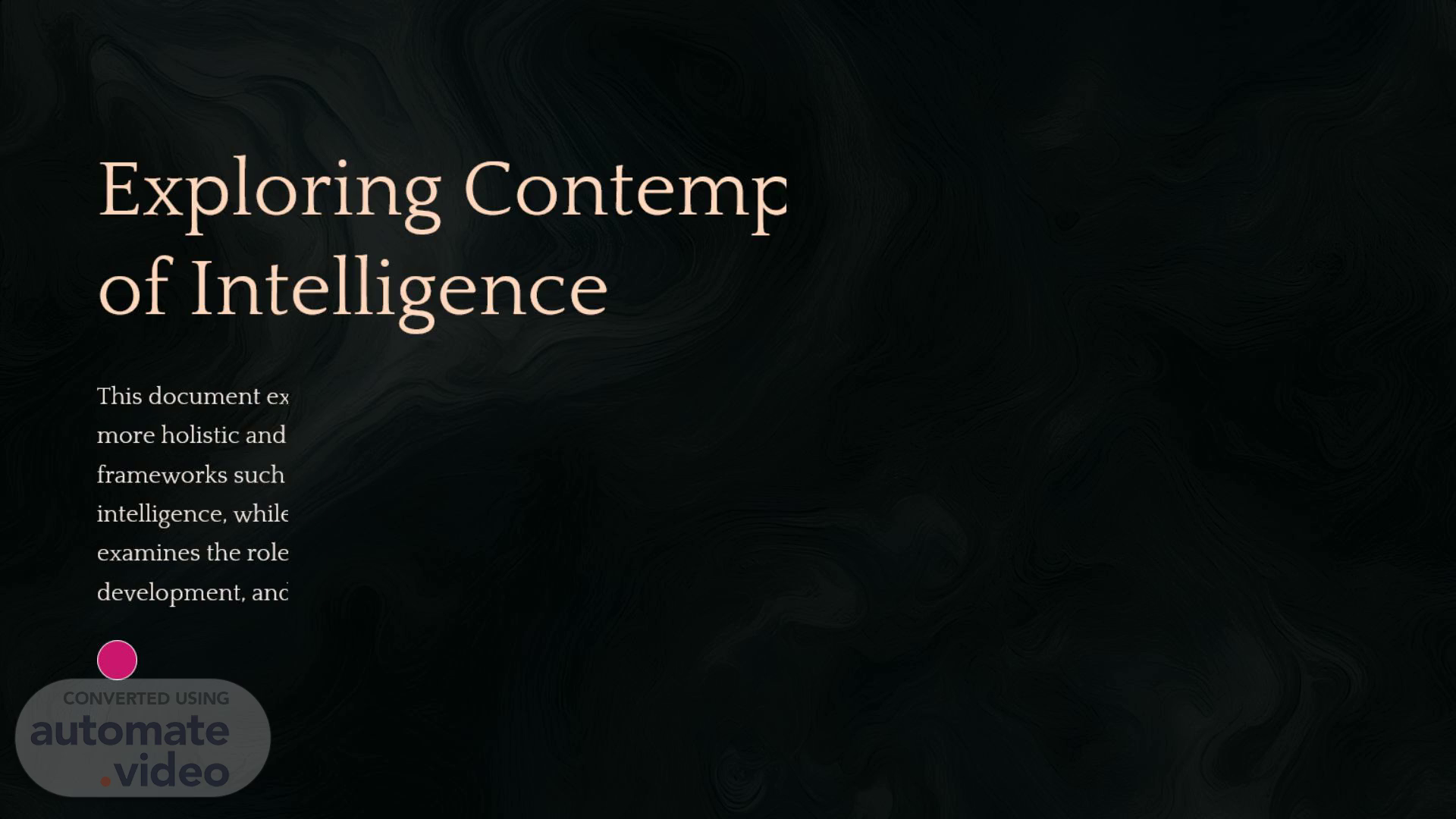Scene 1 (0s)
Exploring Contemporary Theories of Intelligence. This document explores the evolving landscape of intelligence theory, from the traditional conceptualizations to the more holistic and multifaceted perspectives that have emerged in recent decades. It delves into groundbreaking frameworks such as Howard Gardner's theory of multiple intelligences and Daniel Goleman's work on emotional intelligence, while also examining the criticisms and controversies surrounding these ideas. The document further examines the role of genetics and environment in shaping intelligence, the implications for education and personal development, and the future directions of intelligence research..
Scene 2 (26s)
Defining Intelligence: Traditional Approaches. Historically, intelligence has been viewed through a narrow lens, often reduced to a single, numerical measure of cognitive ability. The pioneering work of researchers like Alfred Binet and William Stern laid the foundations for IQ tests, which became the dominant method for assessing and quantifying intelligence. These traditional approaches, while providing a standardized means of evaluation, have been criticized for their limited scope and the potential for cultural bias..
Scene 3 (48s)
Howard Gardner's Theory of Multiple Intelligences.
Scene 4 (1m 31s)
Daniel Goleman and Emotional Intelligence. 1. Emotional Intelligence Defined.
Scene 5 (2m 10s)
Criticisms and Controversies in Intelligence Theory.
Scene 6 (2m 44s)
Measuring and Assessing Intelligence. Traditional IQ Tests.
Scene 7 (3m 11s)
The Role of Genetics and Environment in Intelligence.
Scene 8 (3m 41s)
Implications for Education and Personal Development.
Scene 9 (4m 12s)
11 11. The Future of Intelligence Research. 1. Advances in Neuroscience.
Scene 10 (4m 42s)
Conclusion: Towards a Holistic Understanding of Intelligence.
